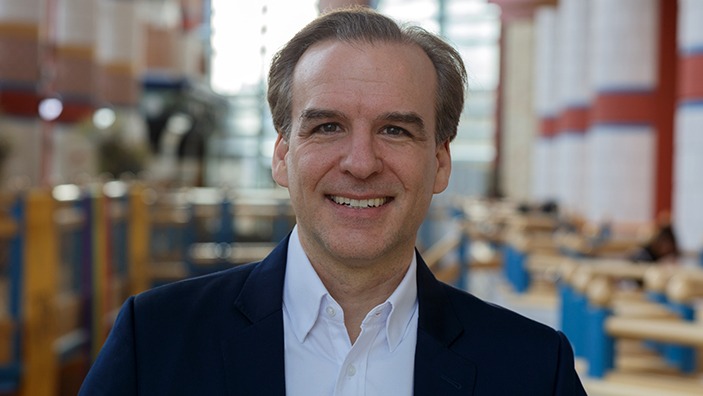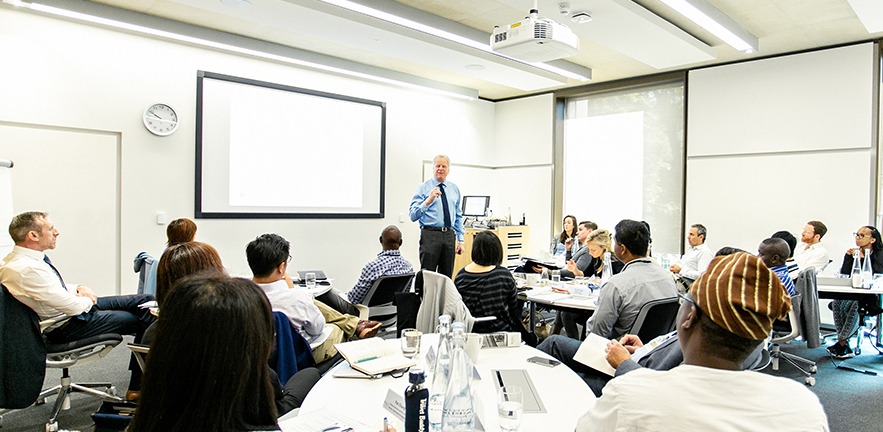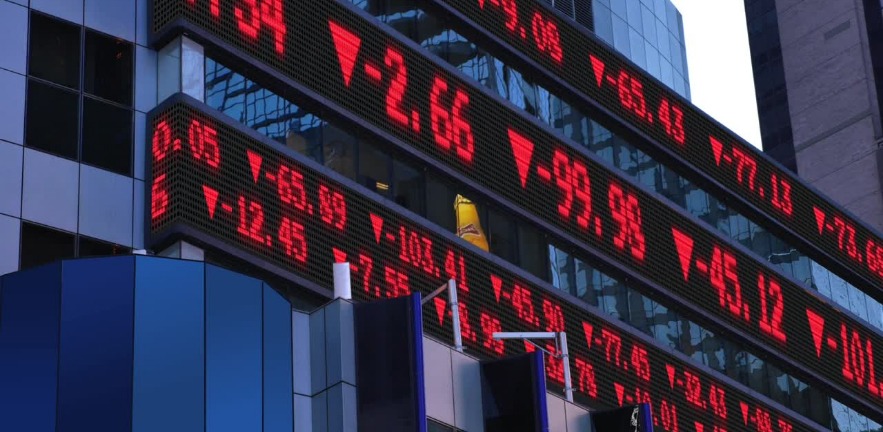Conference calls involving CEOs and financial analysts are usually focused laser-like on business performance: what were revenues, profits, cash flow and other key indicators for the quarter? What is the outlook? This information affects investor expectations and share prices.
But what happens when CEOs go beyond financial information to show some humanity, and can this affect company valuations as well as how CEOs and their firms are perceived by analysts and investors? A new study by academics in Switzerland and the UK shows that it does.
The more human concern, the higher the share price

The study based on analysing 510 CEO conference calls by 448 large US companies during the COVID-19 pandemic found that the more CEOs made statements indicating human concern (for employees, customers, clients or others affected by the virus) the better those companies fared on the stock market when share prices tumbled precipitously between January and March 2020 as the pandemic took hold.
This is true even though most of these statements were generic expressions of concern rather than specific humanity-based actions to be taken – what the study’s authors label ’cheap talk’.
The study also found that, although these CEO human care statements had little or no short-term effect on analysts’ financial forecasts, firms whose CEOs issued such statements had less stock volatility in the period after the peak stock-market falls associated with the pandemic. This means that market participants “discounted these companies’ future earnings less”, says the study published in the journal Academy of Management Discoveries.
The study – entitled “CEOs showing humanity: human care statements in conference calls and stock market performance during crisis” – is co-authored by Lauren Howe of the University of Zurich, Laura Giurge of the London School of Economics, Alexander Wagner of the University of Zurich and Swiss Finance Institute, and Jochen Menges of the University of Zurich and Cambridge Judge Business School.
Beyond the pandemic and its aftermath, the study’s findings have broader implications for the role of CEOs in showing leadership during crisis situations.
Says co-author Dr Jochen Menges, Associate Professor in Organisational Behaviour at Cambridge Judge Business School:
“Leadership is about both performance and people. CEOs who focus solely on performance miss out on the opportunity to show the care for people that is expected of them. Our study provides evidence that care for people pays off even in conference calls with analysts and investors who are expected to focus squarely on performance.”
Leadership is about both performance and people. CEOs who focus solely on performance miss out on the opportunity to show the care for people that is expected of them. Our study provides evidence that care for people pays off even in conference calls with analysts and investors who are expected to focus squarely on performance.
The value of humanity in crisis
“Cheap talk may be considered a liability in business. Yet, we discovered that CEOs’ brief statements expressing concern for people, despite lacking objective substance in terms of concrete actions, seemed to have a payoff for companies in the context of the COVID-19 crisis, managing to sway market participants,” says the study.
“This finding suggests that a reduction in perceived uncertainty is a possible pathway through which human care statements, despite being relatively cheap talk, might influence market participants and have positive financial effects during crises.”
we discovered that CEOs’ brief statements expressing concern for people, despite lacking objective substance in terms of concrete actions, seemed to have a payoff for companies in the context of the COVID-19 crisis, managing to sway market participants.
The unique nature of the pandemic sparked authors’ interest
The authors say the unique nature of the pandemic crisis sparked their interest in how CEOs’ expression of humanity – or lack thereof – could have broader market implications.
Says co-author Lauren Howe “In May of 2020, after the COVID-19 pandemic erupted, I was reading through transcripts of conference calls executives held with financial analysts. I was intrigued by the fact that some CEOs referenced their concern for the health and safety of employees, customers, and others affected by the virus, taking a moment to say things like ‘our first priority is the health and safety of our employees.’ I started to wonder whether this acknowledgment of the human impact of the crisis might be predictive of stock price reactions.”
Adds co-author Alexander Wagner, “Conference calls are one of the prime ways in which investors get live access to CEOs. What CEOs say on these calls, and how they say it, regularly moves markets, and in the context of a crisis such as COVID-19, it is plausible that investors pay particular attention to such calls.”
How did CEOs address the human impact of COVID-19?
The study’s authors were surprised that, although COVID-19 was a crisis that was particularly human-centric, nearly half (48.2%) of the CEOs who discussed the pandemic in conference calls made no human care statement at all – and that most of the statements that were made were superficial rather than pledging concrete action to help people affected.
Co-author Laura Giurge notes “Although we were optimistic to see that some CEOs were addressing the human impact of the crisis, we were surprised to find out that most of these statements were just that: acknowledgments that people and their well-being matter. The statements lacked substance, meaning they did not indicate any actions CEOs were taking to protect people and their well-being.”
Yet superficial or not, the study finds that each additional human care statement was associated with 2.49 percentage points higher cumulative returns. Given that the median market value of equity in the sample was about $3.17 billion, this effect amounts to around $78.9 million of company financial value preserved in the wake of the crisis. “This is a sizable effect: it is equivalent to the effect of a 0.75 standard deviations lower leverage (debt),” says the study.
The study is based on archival data of statements from CEOs of companies on the Russell 3000 Index (representing the largest traded US companies comprising 98% of the US public equity market) who spoke about COVID-19 on conference calls (using terms such as ’Coronavirus’, ’COVID-19’ or ’SARS-CoV-2′ at least once) as the pandemic crisis unfolded from 22 January to 20 March 2020, which is considered the ’Fever’ period when most US companies suffered a steep share-price decline.
Examples of expressions of humanity cited in the study
I mean, first of all, any time people are sick or tragically lost their lives, that’s a much more important topic than anything we’re covering today. So I just want to sort of put a fine point on that
First off, the whole coronavirus situation is a human situation. It’s kind of a human tragedy.
Obviously, the coronavirus makes a very fluid situation. […] I’ll start by saying, our first priority is making sure that our employees, partners and customers are safe.
The first and foremost order of business is to make sure our employees and our partners are safe and protected.
Impact on share prices during the pandemic
Most of the companies in the Russell 3000 index experienced negative cumulative returns during the pandemic. On average, share prices declined by 39.79% over the crash period from 24 February to 20 March 2020 across the 448 companies in the study’s dataset.
Of the companies quoted above:
- Take-Two Interactive Software experienced a -13.69% decrease, or 26.11% less than the average.
- Autodesk experienced a -26.69% decrease, or 13.10% less than the average.
- Zebra experienced a -24.75% decrease, or 15.04% less than the average.
- Columbia Sportswear experienced a -33.36% decrease, or 6.43% less than the average.
Investors may be more confident in long-term performance when CEOs show compassion
In follow-up analyses, the researchers found that human care statements correlated with stock volatility during the crisis, but not with analysts’ evaluations of future earnings. These findings suggest that market participants discounted companies’ future earnings less when the companies’ CEOs had expressed care for people.
The research also looked at the effect of human care statements on cumulative returns during 2 ‘Recovery’ periods after the ‘Fever’ period – from 23 March to 13 April 2020, prior to the implementation of major government financial interventions, and from 14 April 2020 to 28 May 2021.
Although the initial effects for some variables partially reversed later on, the effect on cumulative returns strikingly did not significantly reverse, the research found.
“This lack of a significant reversal is meaningful because it indicates that market participants did not readjust their behaviour to return to normal ( pre-crash) patterns. Namely, it is not the case that human care statements initially drew market participants toward these companies, but then later (once the stock market shock passed) market participants readjusted to no longer prioritise these companies.
“Overall, these findings suggest that the effect of human care statements was not merely a temporary (and perhaps behaviourally induced) mispricing, but rather a sustained perception of greater company value among market participants, even after the acute crisis had passed.”
Overall, these findings suggest that the effect of human care statements was not merely a temporary (and perhaps behaviourally induced) mispricing, but rather a sustained perception of greater company value among market participants, even after the acute crisis had passed.
Featured research
Howe, L.C., Giurge, L.M., Wagner, A.F. and Menges, J.I. (2024) “CEOs showing humanity: seemingly generic human care statements in conference calls and stock market performance during crisis.” Academy of Management Discoveries





